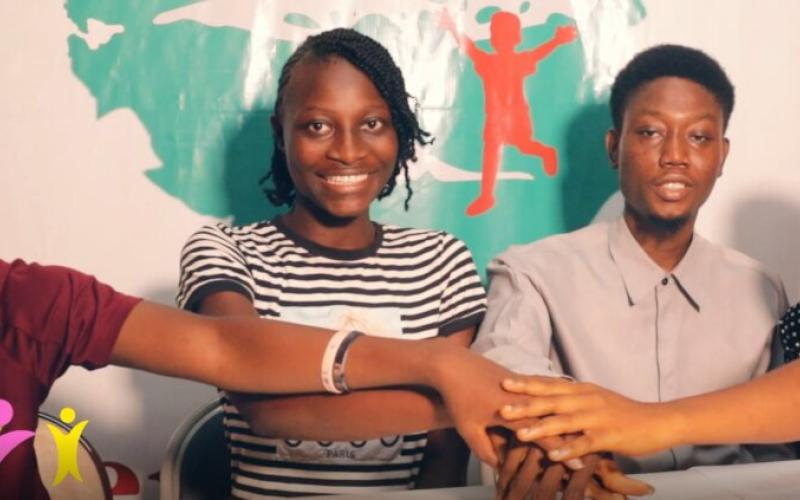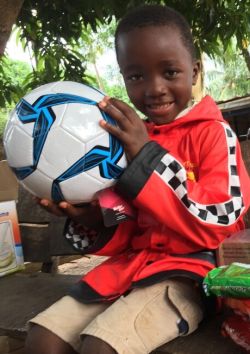
This past month in Equatorial Guinea, the 17th African Union Summit opened for discussion centered on the theme: Accelerating the Empowerment of Youth for Sustainable Development. Leaders from all 54 member states attended –minus one Colonel Gaddafi- with diplomats flying in from all over the world. African and global leaders were joined by youth representatives from Africa’s five regions along with a contingent of 130 young people from the African Youth Volunteer Corp (AUVC). As development initiatives in Africa continue to see great success, tomorrows’ leaders will play a huge part in sustaining – or straining – that success, a reality that cannot be addressed soon enough.
| Speaking ahead of the Summit, AU Commission chairperson Jean Ping, observed that progress in Africa cannot be sustained without the establishment of a better environment for African youth: “active, dynamic and creative, willing to see things change on the continent.” In these uncertain times, he further postulated that conflict in North Africa has “confirmed the imperious need to address the legitimate concerns and worries of the youth who are the largest component of our society.” Youth empowerment as a means of achieving lasting development is certainly an idea worth pursuing. Of Africa’s one billion plus population, over 60% are under the age of 35. Within this demographic, an unfortunate majority face chronic unemployment, underemployment, lack of skill-building opportunities and access to capital, and an overwhelmingly unmet need for health-related information and services. |
|
Africa’s youth are living in situations of poverty and hunger, experiencing illiteracy and low quality educational systems, exposed to violence (including gender violence) and are engaging in armed conflicts and experiencing incredible hardship. Today in Africa, over 13.5 million children under 18 have been displaced by conflict and more than 11 million have been orphaned by the AIDs crisis.
Yet these same youth are the future leaders of tomorrow, a fact that has fostered debate and action amongst development agents working in African nations. To illustrate the need for action, one must only ask: how does a child grow into a responsible adult, able to guide her/his nation toward success and stability, when s/he has never attended school? Worse still, how does a person take on a leadership position – or even act as a responsible citizen – when s/he spent her/his formative years in a refugee camp engaging in high-risk behavior as a means to survive? Impossible? Maybe not. But it is an undeniable cause for concern as Africa moves from a tragic past and toward a healthier, more secure future.
To address these important questions, African leaders are giving priority to the development and empowerment of those young people who will inherit the continent. Nations are making efforts to involve young people in political and decision making processes, as reflected in the establishment of national youth parliaments, youth appointments in executive positions and consultation with young people on policies and programs that affect their lives. In the final years leading to the Millennium Development Goal’s 2015 target date of achievement, government and non-government agencies, local and foreign aid, African and Western nations alike, are all stepping up efforts to provide access to health care, technology and education, food security, clean water, sanitation and safe communities. Reports indicate that, while there is still more to be done, great progress is being made on all counts.
The 17th African Union Summit is contributing an important colloquium which explores youth empowerment and lasting solutions to the unique challenges faced by Africa’s youth. To date, attendants have held detailed discussions on expanding employment opportunities for young people and increasing university attendance, among other topics. Leaders reviewed plans for the Pan African University, set to open in September 2011, and laid groundwork for the African Observatory of Science, Technology and Innovation. Discussions expanded upon recommendations by the African Youth Forum held in Addis Ababa Ethiopia this past April, and will act as a concrete launching point for further action.
As Africa’s leaders take impressive steps toward empowering youth to foster development, it is imperative that global solidarity efforts also rise to the occasion. At no time in history has support for Africa’s youth been more necessary to sustained growth, nor had a greater potential for lasting results. Please, continue to sponsor children in developing countries; keep collecting school supplies for those children dedicating themselves to education despite a lack of material; support clean water movements and make donations to keep schools running; perhaps most importantly, educate yourself and others on the incredible potential Africa’s youth have to improve their communities, and by extension the world. As the 17th African Union Summit lays the ground work for serious action to empower youth, please continue to do all you can from home to bluster the strength of some of the world’s most vulnerable individuals, who hold some of the world’s greatest potential.
Stay tuned to Develop Africa’s Blog for updates on youth empowerment initiatives! Better yet, consider getting involved in our ever expanding youth development projects!



